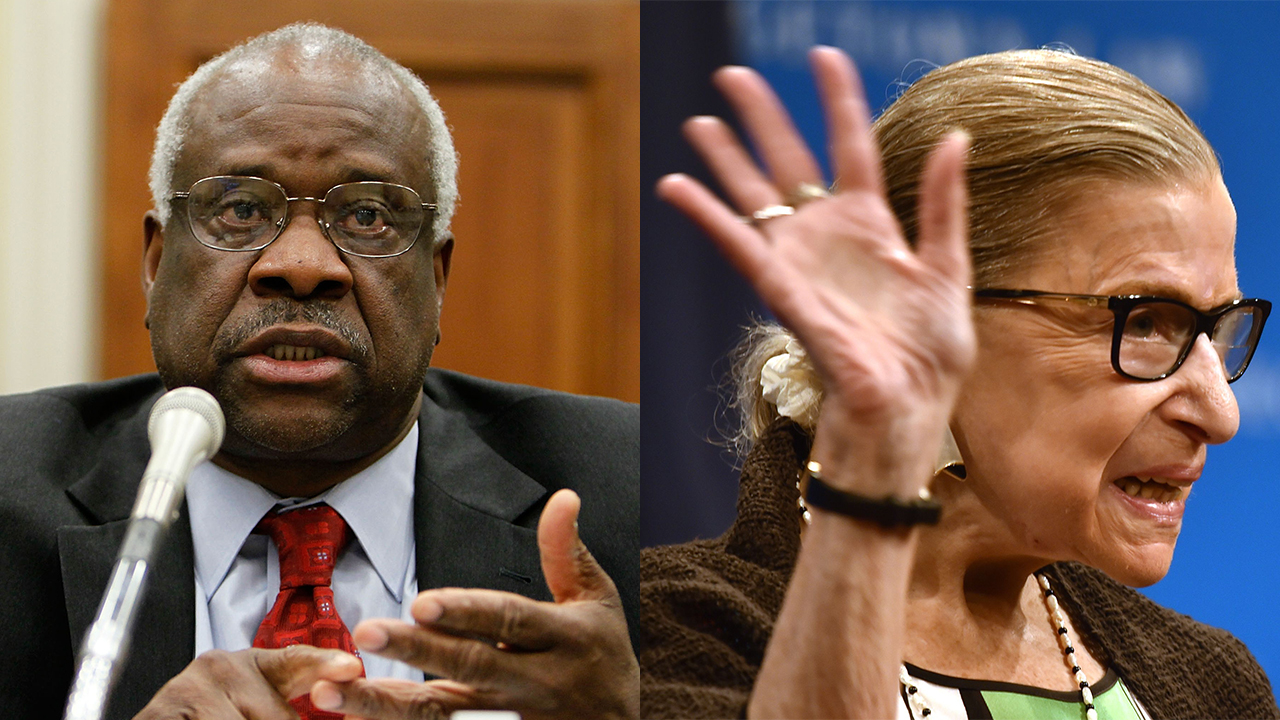Ruth Bader Ginsburg Slams Clarence Thomas: Woman Seeking Abortion is Not a ‘Mother’

Supreme Court Justice Ruth Bader Ginsburg clapped back at fellow Justice Clarence Thomas with her partial dissent in an abortion case, noting, among other things, that “a woman who exercises her constitutionally protected right to terminate a pregnancy is not a ‘mother’.”
On Tuesday, the Supreme Court issued an unsigned ruling in the case of Box v. Planned Parenthood of Indiana and Kentucky, Inc. that overturned one lower court ruling, but upheld another.
The court reversed a ruling that blocked an Indiana law restricting the disposal of fetal remains, which means that provision is held to be constitutional.
But the court also upheld the lower court’s ruling blocking a ban on abortions based on the reason for terminating the pregnancy. The provision bars “The knowing provision of sex-, race-, or disability-selective abortions by abortion providers.”
The court denied cert on the second issue, leaving the lower court’s decision to block that provision in place.
RBG and Thomas traded barbs in their written opinions, with Thomas saying that Ginsburg’s “dissent from this holding makes little sense,” and Ginsburg trashing Thomas’ concurring opinion on both questions.
Thomas agreed with the decision on fetal remains, but argued at length in favor of the selective ban. Ginsburg concurred with the latter ruling, but dissented on the fetal remains ruling. In her dissenting opinion, Justice Ginsburg added a note slamming Thomas’ opinion.
“(A) woman who exercises her constitutionally protected right to terminate a pregnancy is not a ‘mother,'” Ginsburg noted, and added that “the cost of, and trauma potentially induced by, a post-procedure requirement may well constitute an undue burden.”
Thomas repeatedly referred to a woman seeking an abortion as a “mother” in his opinion, and referred to a fetus as “an aborted child’s body.”
In upholding the fetal remains provision, the court ruled that there was a “rational basis” for the law, despite the fact that although it prohibits the disposal of fetal remains with other medical waste, it still allows for the mass cremation of fetal remains. As Justice Ginsburg noted, the Court did not consider whether the provision constituted an undue burden on women, as outlined in Planned Parenthood v. Casey.
[Featured photos by by Alex Wong/Getty Images (L), Brendan Smialowski/AFP/Getty Images (R)]





Comments
↓ Scroll down for comments ↓